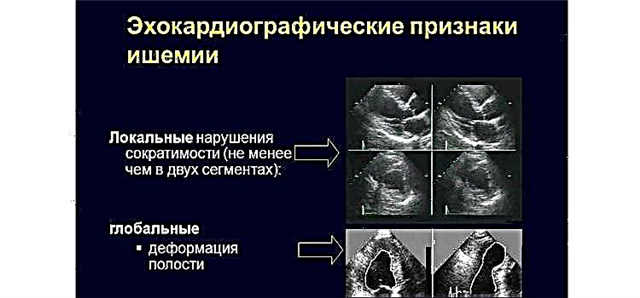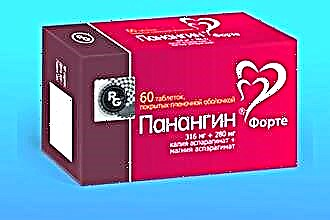Does sugar affect blood pressure?
 Now we can say with confidence that not only salt, which most hypertensive patients are aware of, but also the blood sugar level affects blood pressure. The higher the glucose concentration (hyperglycemia), the higher the corresponding blood pressure values. In addition, an indirect relationship is also found, since an increased intake of carbohydrates contributes to the development of obesity and atherosclerosis, which also lead to hypertension. This is most common in diabetes.
Now we can say with confidence that not only salt, which most hypertensive patients are aware of, but also the blood sugar level affects blood pressure. The higher the glucose concentration (hyperglycemia), the higher the corresponding blood pressure values. In addition, an indirect relationship is also found, since an increased intake of carbohydrates contributes to the development of obesity and atherosclerosis, which also lead to hypertension. This is most common in diabetes.
In turn, hypoglycemia (that is, low sugar) can cause a decrease in blood pressure. Usually, a similar situation occurs with an overdose of antidiabetic drugs or insulin, which can provoke the development of a coma. Prolonged fasting is also the cause.
Mechanism of influence
There are several mechanisms by which sugar increases blood pressure in diabetes. First, the release of norepinephrine, which has vasoconstrictor properties, is provoked, which gives the fastest effect. Another short-term effect of hyperglycemia is an increase in plasma osmotic pressure. Thanks to this mechanism, water is retained in the body, which contributes to an increase in the volume of circulating blood (BCC). However, this happens only up to a certain point, until the level of glucose exceeds the renal threshold - 9-10 mmol / l, after which it begins to come out with urine and further stimulates diuresis.
If high sugar stays in the blood for a long time, it causes a violation of all types of metabolism - not only carbohydrate, but also fat and protein. A defect in these processes negatively affects the vascular wall: it narrows, becomes less elastic, resulting in increased pressure.
With long-term diabetes mellitus, tubular nephropathy develops - a kidney disease, as a result of which sodium is retained in the blood and is not excreted in the urine. The trace element promotes an increase in the BCC, as well as swelling and narrowing of the vascular lumen. All this naturally leads to an increase in pressure.
Pressure and sweets: what foods and how much are allowed?
Even despite the fact that with hypertension, sweets increase blood pressure, nevertheless, certain foods are allowed, since they bring a lot of benefits with almost no harm. These include the following sweets:
 honey;
honey;- dried fruits;
- fresh berries;
- dark chocolate.
These products contain a high concentration of trace elements that are beneficial for the heart, and also contribute to the normalization of blood pressure.
For chocolate, black bitter varieties should be preferred. Allowed to consume cocoa. In addition to having a positive effect on the heart and blood vessels, they also successfully fight stress and improve mood, which is associated with their effect on the secretion of "joy hormones" - endorphins. You are allowed to eat no more than one bar of this dessert per week.
Honey has a huge amount of useful vitamins and minerals, especially potassium. Instead of glucose, it contains fructose, so it can be consumed even by diabetics. It is recommended to eat 2 tablespoons a day.
Dried fruits and berries, in addition to providing the need for sugar, minerals and vitamins, also have a pronounced diuretic effect, which is important in hypertension, reducing the patient's need for antihypertensive pills. It is very good to use them together with cinnamon, which also lowers blood pressure.
 As far as hypotension is concerned, almost any sweetness will increase blood pressure. But do not be zealous - too much sugar will negatively affect the health of hypotonic patients, including. It is best to consume natural foods such as honey or dried fruits.
As far as hypotension is concerned, almost any sweetness will increase blood pressure. But do not be zealous - too much sugar will negatively affect the health of hypotonic patients, including. It is best to consume natural foods such as honey or dried fruits.
How does sweet tea affect blood pressure?
The tea we are used to has a fairly strong effect on blood pressure. It contains a significant amount of caffeine, which has a pronounced hypertensive and general tonic effect, can cause heart palpitations and other arrhythmias. It also contains tannin, which has a similar effect. There are even more of these components in green tea than in black, which must be taken into account when drinking.
Most people are accustomed to drinking tea with sugar, which, of course, only increases the hypertensive effect of the drink, which makes it effective in hypotensive patients, especially during crises.
Conclusions
The relationship between sugar and blood pressure in modern medical science is quite obvious. A high blood glucose content in diabetes, as well as an increased consumption of sweets by healthy people, leads to the development of hypertension, and therefore the product is contraindicated in such patients. Better to use its safer counterparts - honey or dried fruits.
On the other hand, in the case of hypotension, sugar has a positive effect and, in reasonable amounts, is able to restore the lowered blood pressure.

 honey;
honey;

